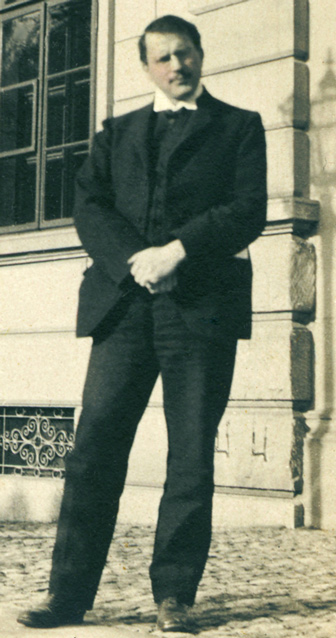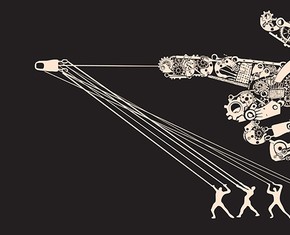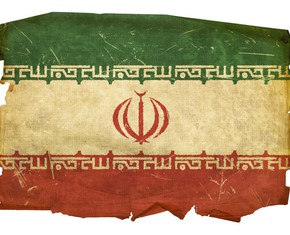The views expressed in our content reflect individual perspectives and do not represent the authoritative views of the Baha'i Faith.
Manliness consists not in bluff, bravado or loneliness. It consists in daring to do the right thing and facing consequences whether it is in matters social, political or other. It consists in deeds not words. – Gandhi
If men and women were surer of their God there would be more genuine manliness, womanliness, and godliness in the world, and a whole lot less fear of each other. – Elisabeth Elliot
The modern world has driven manliness into its biggest identity crisis ever. Over the past few decades, the very idea of what it takes to be a good man has changed dramatically and rapidly. The British sociologist John MacInnes says that this masculinity crisis stems from the collision of two powerful forces:
…the fundamental incompatibility between the core principle of modernity that all human beings are essentially equal (regardless of their sex) and the core tenet of patriarchy that men are naturally superior to women and thus destined to rule over them.” – The End of Masculinity: the confusion of sexual genesis and sexual difference in modern society. Philadelphia: Open University Press. p. 11.
The old, traditional “caveman” masculine role – a combative, competitive, overly rational, domineering, power-wielding, emotionally closed off, unloving, hard-drinking, selfish and oppressive man’s man – has slowly and thankfully faded, replaced by a new, evolved masculinity that expresses a more thoughtful, spiritual, open-minded, empowered, emotionally available, truthful, loving, cooperative, selfless and gentle approach.
This new masculine ideal is good news for boys. Just like girls, boys have innately loving, tender and empathetic character traits as babies. But their exposure to the gender roles society assigns, specifically to the traditionally tough male ideal and the values of hyper-masculinity, suppresses the tender and altruistic aspects of the male character and limits the ability of boys and men to function as healthy, emotional and spiritual adults.
This new masculinity frees men and boys from the constricting confines of the old roles. Men no longer have to put up a façade of hardened toughness and cynical disbelief – we can explore our inner spiritual reality without fear, and begin to know and understand our souls better than ever before.

As a man, seeking your true place in the universe requires all of the components we’ve explored in the previous articles in this series – sociability, meaning, a moral code, cohesiveness and community. But being a man in this new world of gender equality also means doing what the great philosopher and psychiatrist Carl Jung recommended when he said “finding a religious outlook” must be the chief goal of everyone in the “second half of life.”
All of us, male and female, face death and the next existence beyond it — and women often seem, in their ability to select, practice and stick with a spiritual belief system, to be better prepared for that ultimate, inevitable human transition. Hospice and hospital staffers report that women typically experience their passing more peacefully and calmly than men, expressing fewer conflicts and regrets. Perhaps that’s because most women have a Faith and tend to contemplate it, and thus prepare for death, sooner and better than men. And although no generalization about men and women could ever be universally true, many men can learn a great deal from the spiritual wisdom of women when it comes to preparation for transcending this life and finding our place in the next world.
The Baha’i teachings urge everyone, man and woman, to independently investigate, explore and decide on their own beliefs themselves. Life’s biggest question, as Jung reminded us, involves finding a religious outlook, and determining our own individual relationship with eternity. Preparation for the transition into the next world has to start now, because none of us knows his fate; so men can all benefit from meditating, praying and talking with those we love about the inexorable process of life — which always leads to the next life.
We need each other for that process of understanding our place in the eternal scheme of things. We need to break down the barriers our gender roles assign to us, connect with each other on a profound spiritual level and seek to know and understand our Creator together. No one lives in a vacuum, and we can all use help from the opposite sex. The Baha’i teachings proclaim the equality of men and women, and say that neither gender can grow to its full potential without the other:
The world of humanity consists of two parts: male and female. Each is the complement of the other. Therefore, if one is defective, the other will necessarily be incomplete, and perfection cannot be attained. There is a right hand and a left hand in the human body, functionally equal in service and administration. If either proves defective, the defect will naturally extend to the other by involving the completeness of the whole; for accomplishment is not normal unless both are perfect. If we say one hand is deficient, we prove the inability and incapacity of the other; for single-handed there is no full accomplishment. Just as physical accomplishment is complete with two hands, so man and woman, the two parts the social body, must be perfect. It is not natural that either should remain undeveloped; and until both are perfected, the happiness of the human world will not be realized. – Abdu’l-Baha, The Promulgation of Universal Peace, p. 134.
















Comments
Sign in or create an account
Continue with Googleor